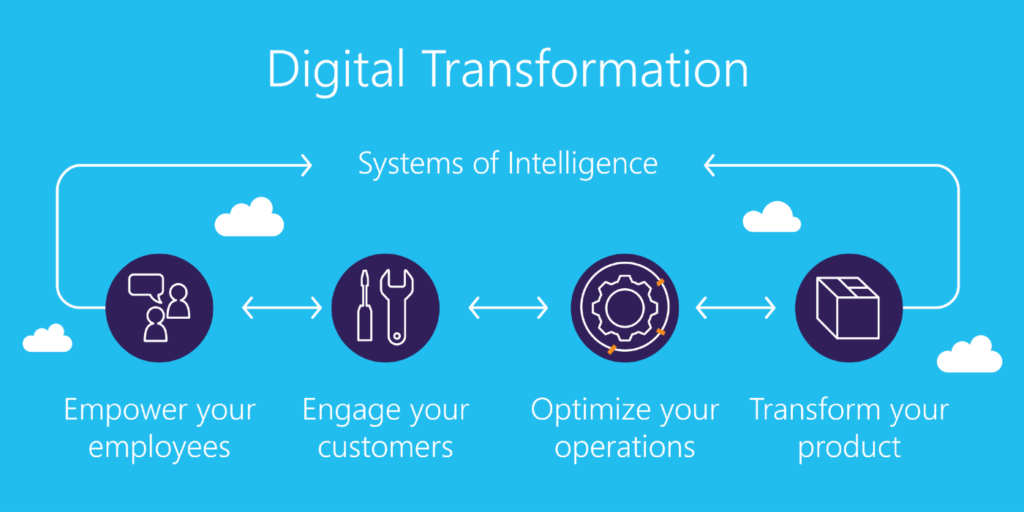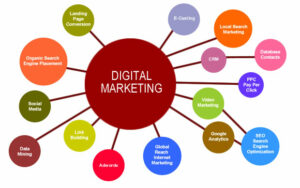Digital transformation for small businesses is an essential part of staying relevant in today’s business landscape. By definition, it’s the process of using digital technologies to create new or different business processes. This means that businesses must constantly evolve to keep up with the latest advancements in technology. Otherwise, they risk becoming obsolete.
There are many benefits to digitizing your business. Perhaps the most important is that it can help you reach new markets and connect with more customers.
The benefits of digital transformation for small businesses
Digital transformation is the process of using digital technology to create new — or modify existing — business processes, products, and services. Many businesses are undergoing digital transformations in order to remain competitive in today’s marketplace.

There are many benefits of digital transformation for small businesses. One benefit is that it can help small businesses become more competitive by enabling them to better utilize technology. Additionally, digital transformation can help small businesses save money and improve efficiency. Finally, digital transformation can help small businesses better understand and serve their customers.
Digital transformation is especially important for small businesses because they often don’t have the resources to keep up with larger businesses when it comes to technology. By undergoing digital transformation, small businesses can level the playing field and compete more effectively.
The challenges of digital transformation for small businesses
Small businesses are the backbone of the economy, but they face challenges when it comes to digital transformation. MSMEs account for 97% of all tax-paying companies in Jamaica but they are lagging behind in terms of digitization.
Digital transformation can be costly and time-consuming, but it is essential for small businesses to stay competitive. The first step is to assess where you are on the digital transformation journey and what needs to be done.
In today’s business world, going digital is no longer an option – it’s a necessity. Yet, for small businesses and micro-sized enterprises (MSMEs), the journey to digital transformation can be a daunting one.
There are numerous factors to consider, from which platform or tools to use, to how to migrate existing data and processes, to training employees on new systems. It can be a lot for a small business owner to handle – and that’s not even taking into account the cost involved.
However, there are ways to ease the transition. By starting small and focusing on one area at a time, businesses can make the digital transformation process less overwhelming – and ultimately reap the rewards that come with being a digitally-savvy organisation.
The key to successful digital transformation for small businesses
Small businesses are the backbone of any economy and success in the digital age is essential for their growth. However, many small businesses face the challenges of digital transformation. Digital transformation is pivotal for small businesses in today’s digital age. By harnessing the power of technology, small businesses can level the playing field against larger enterprises. Also, try to avoid these costly mistakes as a business owner.
However, digital transformation is not without its challenges. Many small businesses struggle to keep up with the latest technology trends, while others lack the resources to invest in digital transformation.
Despite these challenges, there are a number of key factors that can make digital transformation successful for small businesses. Firstly, it is important to have a clear understanding of what digital transformation entails and how it can benefit your business. Secondly, you need to identify which areas of your business need to be transformed and understand that digital transformation for small businesses is a mix of the right technology and processes. Having the right technology in place is essential to enable small businesses to automate processes, improve efficiencies and better engage with customers. Finally, you must create a culture within your organisation that is supportive of change and embrace innovation. Digital transformation can be a daunting task for small businesses, but by taking a phased approach and focusing on the key areas of customer engagement, process automation, and efficiency gains, it is possible to make the transition successfully.
Why digital transformation is essential for small businesses today
In conclusion, digital transformation is essential for businesses today for many reasons. First, it can help businesses become more efficient and save money. Second, it can help businesses improve customer satisfaction. Third, it can help businesses better compete in the marketplace. Finally, digital transformation can help businesses future-proof their operations. For these reasons, all businesses should consider implementing digital transformation strategies. By making digital transformation a priority, businesses can stay ahead of the competition and position themselves for long-term success.
You can start by checking out the top five digital marketing strategies




















